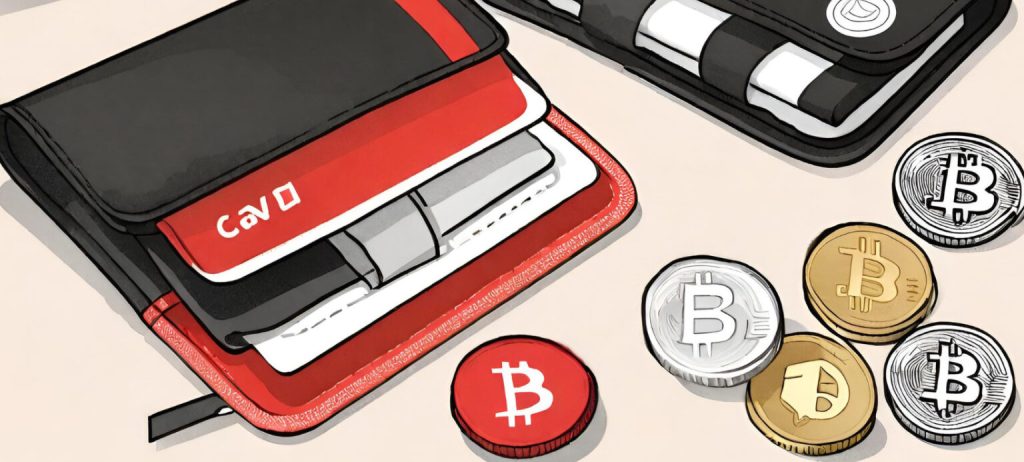
In the ever-evolving world of cryptocurrencies, having a secure crypto wallet is essential. Whether you’re buying Bitcoin for the first time or managing a diverse altcoin portfolio, understanding how wallets work—and which ones are safest in 2025—can save you from loss, scams, or costly mistakes.
This guide will break down what a crypto wallet is, how it works, the different types available, and the safest options you can use today.
🔐 What Is a Crypto Wallet?
A crypto wallet is a tool that lets you store, send, and receive cryptocurrencies like Bitcoin (BTC), Ethereum (ETH), and thousands of altcoins. But unlike a physical wallet, a crypto wallet doesn’t store currency itself—instead, it stores your private keys, which are required to access and control your crypto on the blockchain.
💡 Think of a crypto wallet as your personal key to the blockchain. Lose the key, lose access.
🧠 How Do Crypto Wallets Work?
Each wallet is made up of two main components:
- Public Key: This is your wallet address (like an email). You can share it to receive crypto.
- Private Key: This is your secret code that allows you to access and move your crypto. Never share this with anyone.
When someone sends you crypto, it’s recorded on the blockchain under your public address. To access or send it, you need your private key to verify ownership and authorize the transaction.
🧰 Types of Crypto Wallets in 2025
There are two major categories of crypto wallets:
1. Hot Wallets (Internet-connected)
Hot wallets are software-based and stay connected to the internet. They’re convenient, fast, and ideal for frequent use, but they’re more vulnerable to hacks.
🔸 Examples of Hot Wallets:
- MetaMask (Ethereum and EVM-based chains)
- Trust Wallet (Multi-chain)
- Coinbase Wallet
- Phantom Wallet (Solana)
- Exodus
Pros:
- Easy to use
- Free to set up
- Perfect for quick transactions and DeFi
Cons:
- Higher risk of hacking
- Susceptible to phishing attacks
2. Cold Wallets (Offline/Hardware wallets)
Cold wallets are physical devices or paper printouts that store your keys offline, away from internet threats. They’re the safest option for long-term holders or those with large amounts of crypto.
🔸 Popular Cold Wallets in 2025:
- Ledger Nano X Plus
- Trezor Model T
- SafePal S1
- GridPlus Lattice1 (for high-security institutions)
Pros:
- Maximum security
- Immune to online hacks
- Ideal for long-term storage
Cons:
- Less convenient for daily use
- Initial cost ($70–$300)
🛡️ In 2025, a growing number of crypto investors use both: a hot wallet for day-to-day activity, and a cold wallet for savings.
🏆 What Is the Safest Crypto Wallet in 2025?
There’s no one-size-fits-all wallet, but here are the top safe wallets by category in 2025:
🔐 Safest Hardware Wallet: Ledger Nano X Plus
- Why it’s safe: Secure Element chip (CC EAL5+ certified), Bluetooth support, PIN + recovery phrase.
- Supports: 5,000+ coins and tokens
- Mobile App: Ledger Live for full control
- Bonus: Now supports staking and NFT management
🧠 Ledger is the gold standard in cold wallet security. Trusted by institutions and individuals alike.
📱 Safest Mobile Hot Wallet: Trust Wallet
- Why it’s safe: Open-source, multi-chain support, private key control remains with you
- Features: Built-in DApp browser, staking, and token swaps
- Backup: 12-word seed phrase
✅ Owned by Binance, but keys remain in your control—ideal for daily use with DeFi and NFTs.
🌐 Best Web Wallet for Ethereum Users: MetaMask
- Why it’s safe: Local private key storage, strong ecosystem
- Use case: DeFi, NFTs, Web3 apps
- Extensions: Supports hardware wallet integration (Ledger, Trezor)
⚠️ Just be cautious of phishing sites and browser extensions.
🛑 Common Wallet Security Mistakes to Avoid
Even the safest wallet can fail if you make these errors:
- Not backing up your seed phrase
→ Always write it down on paper and store it securely. - Sharing private keys or seed phrases
→ Never share them with anyone—even customer support. - Clicking fake links or downloading fake apps
→ Use only official websites or trusted app stores. - Leaving funds on exchanges
→ Exchanges can be hacked or freeze accounts. “Not your keys, not your coins.”
🪙 Bonus: Wallets That Support Staking and Passive Income
Want to earn while you hold? These wallets let you stake crypto and earn rewards:
- Ledger Live – Stake ETH, DOT, SOL, and more
- Trust Wallet – Stake BNB, ADA, and other coins
- Exodus Wallet – Intuitive staking UI for several assets
💸 A great option if you want to generate passive income without sending funds to an exchange.
🔚 Final Thoughts
In 2025, crypto wallets are more powerful, diverse, and user-friendly than ever—but security still starts with you. Understanding how wallets work and choosing the right one can make the difference between financial freedom and loss.
🔑 Quick Summary:
| User Type | Best Wallet |
|---|---|
| Beginner | Trust Wallet / Coinbase Wallet |
| Ethereum DeFi user | MetaMask |
| Long-term holder | Ledger Nano X Plus |
| High-security need | Trezor / GridPlus |
🧠 Pro Tip: Use a cold wallet for long-term storage and a hot wallet for daily use. Always keep your private keys offline and your seed phrase safe.